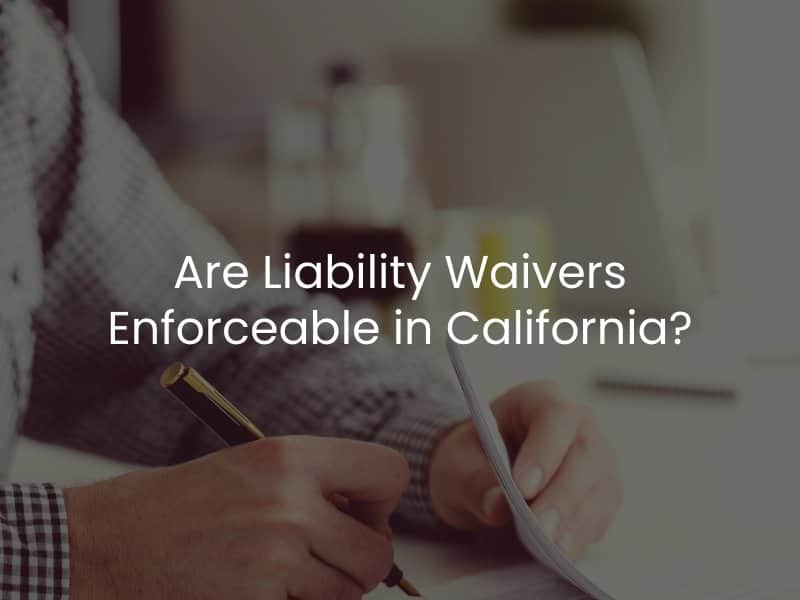
Have you ever signed a waiver of liability? Chances are, at some point, you have signed one either for yourself or for your children. In fact, most people sign waivers of liability without ever thinking about what they actually mean.
Waivers of liability are documents that individuals sign before they partake in something that could result in some sort of injury. The waiver essentially means that the person responsible for the activity will not be held liable in the event an injury occurs. However, we want to discuss whether or not liability waivers are enforceable in California.

Waivers of liability arise in many situations in California. In general, we will find that waivers of liability are used before a person participates in an activity that could lead to a risk of injury. Some of the most common times when a waiver of liability are signed include the following:
It is also important to point out that there are times when a person takes an “assumption of risk” when participating insert in activities. This assumption of risk could shield a defendant from liability in certain circumstances, even if a valid waiver is not signed. The California Supreme Court has said that the doctrine of primary assumption of risk applies to activities “involving an inherent risk of injury to voluntary participants […] where the risk cannot be eliminated without altering the fundamental nature of the activity.”
In general, waivers of liability are enforceable in California so long as they have been drafted correctly and explicitly discuss the scope of coverage. Waivers also have to be legible and use high visibility text, and they cannot illegally waive unknown or unrelated claims.
There are some circumstances where a waiver of liability may not be upheld. This includes:
If you or somebody you care about has been injured as a result of the carelessness or negligence of someone else, you need to speak to an attorney as soon as possible. Even if you have signed a liability waiver, a personal injury attorney needs to examine the waiver to determine whether or not it will be upheld in court. There are many circumstances that could invalidate a waiver of liability and allow you to recover compensation for your injuries.